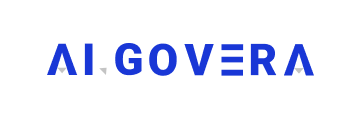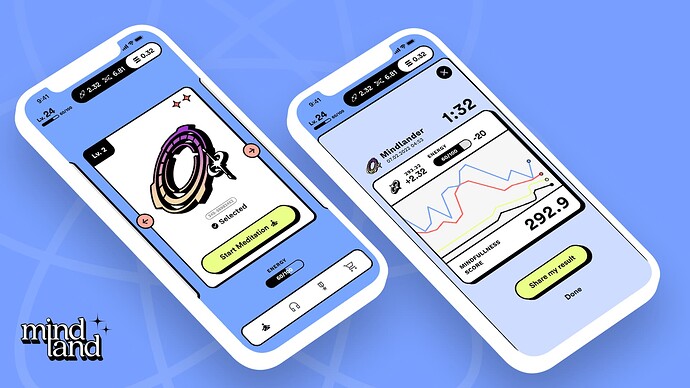Name of Project: Mindland
Proposal in one sentence: Build an app incentivizing the contribution of HRV/Brain data to train AI models.
Description of the project and what problem it is solving:
Our mission is to make a system where people will upload their valuable biometric data such as brain data on chain and monetize them on their will. We will use tokens and gamification to scale the collection of these data for accelerating neuroscience and ML research. We start off with Meditate-and-Earn, where people are incentivized to upload their brainwave and HRV data during meditation to receive a fair share of the economic value created there, but we will apply this mechanisms to collect brain data of other tasks too.
Phase 1: Meditate-and-Earn
- Incentivize users to practice meditation and help them make it into a habit with crypto and NFT rewards, as well as gamification. To track users’ meditative state, we monitor brain waves using BCI or HRV using fitness tracker / smartphone
Phase 2: Evidence-based meditation
- Using users’ brainwave / heart rate data during meditation collected in Meditate-and-Earn, the AI in Mindland will be able to make suggestions on how to improve users’ meditation. The subscription revenue from this content will be distributed to users as well.
Phase 3: Brainwave Hub
- Become a hub for brain data not limited to meditation where data providers will be rewarded too while maintaining the ownership of their brain data. The biggest possible use for this hub is neuromarketing, which is a marketing tactic that uses brainwave data. The market for neuromarketing is estimated to reach $21 billion by 2030.
We have 1.4K+ discord members and ran our closed alpha test with 150 people chosen from the community. The BCI model we are using is the Muse headband, and 20 people out of 150 testers having already bought one to test the closed alpha.
Grant Deliverables:
- Grant Deliverable 1: Launch our beta-test with three part-time developers and one UI/UX designer.
- Grant Deliverable 2: Reach 5k total beta test users
Spread the Love
We are looking for a data scientist who previously worked with EEG data.
Squad
Squad Lead:
- Twitter handle: @nyneurotech
- discord handle: Nao | Mindland#7618
- USDC ETH mainnet wallet address for potential funds
- 0x8e5c585e373A743DcdD6deDaD3f803dAb0d4B7D8
Squad members:
- Twitter handle: @royang_c
- discord handle: reian#4434


